Simons Fellows in Mathematics
- Application Deadline:
12 p.m. (noon) EDT - Notification By:
- Earliest Award Start Date:
- Application Deadline:
12 p.m. (noon) EDT - Notification By:
- Earliest Award Start Date:
- Program or Administrative Questions:
Elizabeth Roy
Senior Manager for Programs and Administration
[email protected]
212-524-6966 - Technical Questions:
[email protected] - Simons Award Manager (SAM) FAQ and Instructional Videos:
https://www.simonsfoundation.org/funding-opportunities/simons-award-manager-sam-faq-and-instructional-videos/ - Office Hours: Monday–Friday, 9:00 a.m.–5:00 p.m. Eastern Time, except designated holidays.
Office Closures:
November 27–29, 2024, December 24, 2024–January 1, 2025, and January 20, 2025
The Simons Foundation’s Mathematics and Physical Sciences (MPS) division invites applications for the Simons Fellows in Mathematics program to make sabbatical research leaves more productive by extending them from a single term to a full academic year. Please note that in the event of budgetary or other considerations, The Simons Foundation, Inc. reserves the right to refer an application to The Simons Foundation International, Ltd. (SFI) for consideration and funding, in which case SFI’s grant policies would apply.
The foundation also strongly encourages applications from scientists from underrepresented groups.
Rationale
Sabbatical research leaves from classroom teaching and administrative obligations can provide strong intellectual stimulation and lead to increased creativity and productivity in theoretical research.
Basis for Awards
Awards will be based on the applicant’s scientific accomplishments in the five-year period preceding the application and on the potential scientific impact of the work to be done during the leave period.
Level and Duration of Funding
A Simons Fellowship in Mathematics provides salary replacement (inclusive of both salary and fringe benefits) for up to 50 percent (up to a maximum of $125,000) of the Fellow’s current academic-year salary, whether normally paid over 9, 10 or 12 months, and up to an additional $10,000 for expenses related to the leave. The Fellow’s home institution will receive an additional 20 percent overhead on allowable direct cost expenditures, per the foundation’s indirect cost policy. The maximum total budget request should not exceed $162,000 USD.
The Simons Fellowship will fund up to 50 percent of the 2025–2026 academic year, where, for example, the full leave year period could be January 1, 2025, through December 31, 2025; September 1, 2025, through August 31, 2026; or January 1, 2026, through December 31, 2026. Fellowship funding must be contiguous to the university-supported portion of the leave.
Fellowship awards and sabbatical periods may begin no earlier than January 1, 2025, and no later than January 1, 2026. For sabbaticals beginning January 1, 2025, awards will be retroactively started and grant funds available no sooner than March 2025.
Allowable Expenses
Salary replacement funds are to be used only to replace or partly replace salary during academic terms in which the recipient would otherwise be teaching or engaging in academic administration or other departmental or university committee work. The funding may not be used for summer salary (if salary is paid over nine months) or to increase the academic-year salary beyond the university rate but may be paid out over the course of the full leave. Please follow the university’s policy on costs associated with sabbaticals not supported by the university. If applicable, fringe benefits are allowed within the salary-replacement-funds category, but the total amount requested cannot exceed the maximum allowed ($125,000).
The additional funding is to be used to support expenses related to the leave in a manner consistent with the approved sabbatical plans. Allowable leave-related expenses include small equipment and supplies, travel (including the Fellow and the Fellow’s family members to and from the sabbatical location(s) and the Fellow’s travel to meetings and collaborators), housing (for the Fellow and the Fellow’s family), automobile rental, childcare and support for visitors (including meals). Salaries for students or research associates will not be supported, but funds may be used to help transport members of the Fellow’s research group to the sabbatical location (if different from the home institution) and provide housing. Leave-related expenses may be incurred at any time during the award period; they are not restricted to the terms in which salary is provided by the foundation.
Eligibility Requirements
Eligibility is restricted to sabbatical or equivalent leave-eligible faculty who wish to use the Simons Fellowship award for the purpose of extending at least a single-term sabbatical research leave to a full academic year without teaching or administrative responsibilities. The fellowship program will not support the extension of a full year of sabbatical research leave to an additional term. In order to receive the fellowship, you must be approved by your institution for a full year of sabbatical research leave, consisting of two consecutive semesters or three consecutive quarters with at least 50 percent of the year fully paid by the home university and no more than 50 percent fully or partly supported by the fellowship. Note: A research leave provided by a unit of a university, rather than the university-level sabbatical leave, would not normally be considered as sabbatical equivalent. Please contact [email protected] with any questions concerning this.
If funds from the foundation are insufficient to cover the salary needs for the period supported by the fellowship, other resources can be used for this purpose. The foundation will consider circumstances where, for example, the university covers 80 percent of a full year of leave and the fellowship covers the remaining 20 percent.
Verification of sabbatical approval is not required at the time of application but must be provided to the foundation at least three months prior to the start of the applicant’s award. Please see the How to Apply tab for further information.
A Simons Fellow in Mathematics must have a teaching or administrative tenured position at the same U.S. or Canadian college or university within the mathematics department at the time of application, throughout the course of the sabbatical research leave and in the term following the leave. This must be the applicant’s primary position. Applied mathematics and statistics disciplines are eligible as long as the applicant resides within the mathematics, and not statistics, department. Those doing primarily mathematical education research are not eligible. In addition, a Fellow must have an active, current research program. Fellows cannot simultaneously hold a Simons Investigator award.
Previous fellowship awardees are allowed to apply for another fellowship as long as they follow their universities’ rules on sabbatical or equivalent leave eligibility.
Unspent Funds
Unspent funds at the end of the grant must be returned to the foundation. No-cost extension requests will typically not be considered.
Number of Awards
The foundation expects to award up to 50 mathematics fellowships for 2025.
How to Apply
Applicants must be submitted via the Simons Award Manager (SAM), https://sam.simonsfoundation.org/. The deadline to apply is October 2, 2024, 12 p.m. (noon) EDT.
Please refer to the How to Apply tab for instructions.
Our Commitment to Diversity, Equity and Inclusion
Many of the greatest ideas and discoveries come from a diverse mix of minds, backgrounds and experiences. The Simons Foundation is committed to grantmaking that inspires and supports greater diversity and inclusiveness by cultivating a funding environment that ensures representation of all identities and differences and equitable access to information and resources for all applicants and grantees.
The Simons Foundation provides equal opportunities to all applicants for funding without regard to race, religion, color, age, sex, pregnancy, national origin, sexual orientation, gender identity, genetic disposition, neurodiversity, disability, veteran status or any other protected category under federal, state and local law. The foundation also funds programs directed at supporting scientists from disadvantaged backgrounds or underrepresented groups, often working closely with professional societies and other funding agencies.
- Application Deadline:
12 p.m. (noon) EDT - Notification By:
- Earliest Award Start Date:
- Program or Administrative Questions:
Elizabeth Roy
Senior Manager for Programs and Administration
[email protected]
212-524-6966 - Technical Questions:
[email protected] - Simons Award Manager (SAM) FAQ and Instructional Videos:
https://www.simonsfoundation.org/funding-opportunities/simons-award-manager-sam-faq-and-instructional-videos/ - Office Hours: Monday–Friday, 9:00 a.m.–5:00 p.m. Eastern Time, except designated holidays.
Office Closures:
November 27–29, 2024, December 24, 2024–January 1, 2025, and January 20, 2025
The deadline to submit applications is October 2, 2024, at 12 p.m. (noon) EDT. Late applications will not be accepted. Applications must be submitted via the Simons Award Manager (SAM), https://sam.simonsfoundation.org/. Please click on the Funding Opportunities icon. Applications should be started and submitted under the applicant’s own account in the Simons Award Manager (SAM). For the Simons Fellows in Mathematics application, please click on Create Application and then on Begin Application.
Informational videos on submitting applications in SAM can be found here. Proposal attachments should be single spaced and in a common typeface and font size no smaller than 10 points. Margins must be at least half an inch in all directions.
Please note that in the event of budgetary or other considerations The Simons Foundation, Inc. reserves the right to refer an application to The Simons Foundation International, Ltd. (SFI) for consideration and funding, in which case SFI’s grant policies would apply.
Please complete the application as follows:
- Proposal Tab:
- Applicant Details & Personal Data: Complete all required fields, including academic rank, demographic data, position/title and ORCID iD. This information should be completed in the user’s profile. The applicant may use the Edit Profile button to update their information as needed.
- Academic Degrees: Enter degrees (optional).
- Application Details:
- Enter the title of the application.
- Enter the award start and end dates, which should reflect the full-year sabbatical leave period. These dates will automatically populate in the budget.
- Proposal:
- Certification Questions: Answer sabbatical certification questions. Sabbatical approval is not required at the time of application but must be provided to the foundation at least three months prior to the start of the applicant’s award.
- Statement of Recent Work (two-page limit, plus up to one page for references and figures, which can be embedded within the text): Upload a statement explaining the candidate’s most significant scientific work over the previous five years.
- Statement of Sabbatical Plans (two-page limit, plus up to one page for references and figures, which can be embedded within the text): Upload a statement summarizing the applicant’s plans for the entire leave period, the institution or institutions at which the leave is to be spent and the main scientific goals.
- Applicant Biosketch: Upload a SciENcv or fillable PDF NIH- or NSF-style biosketch.
- Students List: Upload a list of current or recent (past five years) graduate students, postdoctoral fellows and Ph.D. students, as applicable, including their dissertation topics and likely date of completion.
- Letter from Other Institution (if applicable):
- If the leave is to be taken at another institution or institutions and will last longer than one month, confirmation must be submitted from the host institution(s) in the form of a letter signed by relevant department chairs or other appropriate university authorities stating that the visit is approved and briefly describing the facilities that will be made available to the applicant.
- If the letter of confirmation from the prospective host institution(s) cannot be obtained, then the application must include a backup plan describing what would be done if the visit(s) were not possible. The location of the sabbatical must be confirmed, in the form of the above-mentioned letter, to the foundation at least three months prior to the start of the applicant’s award.
- The location must be at either the originally proposed host institution or at the institution(s) specified in the backup plan, unless explicit permission is obtained from the foundation no later than three months before the start of the leave. Please use the Letter from Other Institution as the attachment type if including a backup plan.
- Indicate the extent to which, if any, generative AI technology was used and how it was used to develop your proposal.
- Contacts & Personnel Tab: Please refer to the instructions provided in SAM and foundation grant policies to add required institutional officials.
- Budget Tab: Click the Edit/Modify button to add a detailed, one-year budget in U.S. dollars. In the Personnel Costs section, provide the applicant’s known or expected academic-year salary for the full year of the sabbatical leave period as the Base Salary. If this is not yet finalized, please note this in the justification column and include the expected date of salary increase. The Requested Salary and Fringe Cost should reflect the amount that will be covered by the Fellowship during the full sabbatical leave period. For Leave Related Expenses, provide a brief itemization of anticipated expenses and corresponding justification, not exceeding $10,000. An insufficient budget justification may result in the proposal not being considered further.
- Abstract & Keywords Tab:
- Technical Abstract: Provide a brief summary of where the applicant’s requested leave will take place and the main scientific goals during this time.
- Keywords: Click on the Add/Modify Keywords button to select up to two tags as it applies to the applicant’s research in the last five years. Please note that your choices will be used to select the most suitable reviewers.
- Publications & Other Support Tab:
- Publications: Provide a list of up to five accepted or published papers from the previous five years via the applicant’s SAM profile or PDF upload.
- Other Support: Provide current and pending support via PDF upload or via the applicant’s SAM profile. Provide all of the applicant’s current and pending external PI or co-PI support, which includes all financial resources, whether federal or nonfederal, available that are in direct support of this applicant and their research. It is not necessary to include internal funding or this current application.
If providing via SAM profile, please select Yes and then choose the option to Select Other Support from Profile. Click the Assign Other Support for this Proposal button to add other support to this application. This will display all other support related to the applicant that was previously added to their SAM profile. Reporting overlap is required to submit an application. While overlap is not a consideration for funding in this program, please click on the Report Overlap button for each entry and select Yes or No as appropriate.
If using PDF upload, NSF format is sufficient and should at least provide the award number, source of funding, title of award, dates of project and total costs for each support item listed. Please name each PDF as LastName_FirstName_Support.pdf.
- Check Application Progress: Click the Check Application Progress button to check for any missing required information or files. All missing required information will be listed at the top of the screen and must be corrected before the application can be submitted.
- Send for Sign-off: When the application is complete, please click on the ‘Send for sign-off’ button to send to your signing official for signature. You will receive a notification when the application is signed.
- Submit Application: When the application is complete, please click on the Submit Application button. A confirmation page will appear once the application is successfully submitted, and the application will now appear in the Submitted tab of the Applications in Progress table. Please note that you will not be able to submit an application if the deadline has passed.
- Application Deadline:
12 p.m. (noon) EDT - Notification By:
- Earliest Award Start Date:
- Program or Administrative Questions:
Elizabeth Roy
Senior Manager for Programs and Administration
[email protected]
212-524-6966 - Technical Questions:
[email protected] - Simons Award Manager (SAM) FAQ and Instructional Videos:
https://www.simonsfoundation.org/funding-opportunities/simons-award-manager-sam-faq-and-instructional-videos/ - Office Hours: Monday–Friday, 9:00 a.m.–5:00 p.m. Eastern Time, except designated holidays.
Office Closures:
November 27–29, 2024, December 24, 2024–January 1, 2025, and January 20, 2025
-
My university does not call leaves “sabbatical,” but rather “leave without pay” or “research leave.” Am I still eligible to apply?
You are eligible to apply for the Simons Fellows program if you are eligible for a leave equivalent to a sabbatical, you will be granted a yearlong leave and at least 50 percent of the year’s salary is provided by your university.
-
I have a tenure-track position. Am I eligible to apply?
No, only those with tenured positions are eligible for the fellowship.
-
Can I hold a Travel Support Gift Award and a Simons Fellowship at the same time?
Yes, the foundation allows holding both awards simultaneously.
-
Can the Simons Fellowship support sabbaticals in which recipients remain at their home institutions?
Yes, the fellowship can support this type of sabbatical.
-
Can my sabbatical location be outside of the United States or Canada?
Yes, this is allowable.
-
Although I will not be teaching any classes during my sabbatical, I will have graduate students. Is this acceptable?
Yes, this is acceptable.
-
My primary appointment is in a department of computer science, although my research is primarily mathematics. Am I eligible for a Simons Fellowship in Mathematics?
No, applicants to the Simons Fellows in Mathematics program must have a tenured, primary position in the mathematics department.
-
Will the foundation accept applications from computer scientists?
It is not our intent to support computer science with this program.
-
Would you consider mathematical neuroscience an eligible field for the Simons Fellows in Mathematics program?
Yes, mathematical neuroscience would be an eligible field for the fellowship.
-
My primary research is mathematics education. Am I eligible to apply?
No, you would not be eligible to apply. The program is intended to support theoretical mathematics research.
-
Can the Simons Fellowship be used to match another external fellowship?
No, the Simons Fellowship cannot be used to match another external fellowship.
-
If my total academic salary for the foundation-supported term is greater than $125,000, am I allowed to make up the difference from other sources?
Yes, as long as your total salary, including foundation support for the period of the leave, is less than or equal to your academic year salary.
-
Is there a limit to the number of applicants per university?
No, there is no limit.
-
Are emeriti faculty eligible?
Retired and emeriti faculty are not eligible.
-
I have an adjunct appointment. Am I eligible?
The intent of the program is to support scientists at academic institutions. A scientist whose primary appointment (as determined by source of salary and level of teaching commitments) is at a national laboratory or other research institute but who has an adjunct, courtesy or backup appointment at an academic institution is not eligible. An adjunct faculty member whose primary employer is an academic institution, and who is eligible on the basis of his or her research, is eligible for the Simons Fellowship.
-
I am not a U.S. or Canadian citizen; am I eligible to be a Simons Fellow?
U.S. or Canadian citizenship is not required, but a grantee’s primary appointment must be at a U.S. or Canadian institution in order to apply to or hold the grant.
-
If I am not awarded a Simons Fellowship this year, may I reapply next year?
There is no limit on the number of times one can apply, as long as one is eligible for a sabbatical.
-
To whom is the grant awarded?
The grant is awarded to the Simons Fellow’s home institution.
-
How do I get reimbursed for eligible expenses?
As the grant is made through the awardee’s institution, one should submit requests for reimbursement and purchases as prescribed by the awardee’s department.
The Simons Foundation is pleased to announce the 2024 Simons Fellows in Mathematics. These grants will be funded by the Simons Foundation and Simons Foundation International and administered by the Simons Foundation.
2024
Dan Abramovich, Ph.D.
Benjamin Antieau, Ph.D.
Jinho Baik, Ph.D.
József Balogh, Ph.D.
Yuliy Baryshnikov, Ph.D.
Andrew Berget, Ph.D.
Kenneth Bromberg, Ph.D.
Dawei Chen, Ph.D.
Tamás Darvas, Ph.D.
Semyon Dyatlov, Ph.D.
Lisa Fauci, Ph.D.
Alexander Furman, Ph.D.
Joshua Greene, Ph.D.
Daniel Halpern-Leistner, Ph.D.
Jonathan Hauenstein, Ph.D.
Matthew Hedden, Ph.D.
Florian Herzig, Ph.D.
Dihua Jiang, Ph.D.
Adam Kanigowski, Ph.D.
Bruce Kleiner, Ph.D.
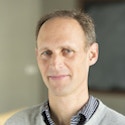
Thomas Koberda, Ph.D.
Alex Kontorovich, Ph.D.
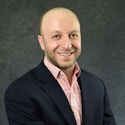
Peter Kronheimer, Ph.D.
Thomas Lam, Ph.D.
Chao Li, Ph.D.
Wencai Liu, Ph.D.
Ivan Loseu, Ph.D.
Kathryn Mann, Ph.D.
Jonathan Mattingly
Curtis McMullen, Ph.D.
Connor Mooney, Ph.D.
Alexander Nabutovsky, Ph.D.
Denis Osin, Ph.D.
Greta Panova, Ph.D.
Andrew Putman, Ph.D.
Regina Rotman, Ph.D.
Yanir Rubinstein, Ph.D.
Richard Schwartz, Ph.D.
Arul Shankar, Ph.D.
Hao Shen, Ph.D.
Pablo Shmerkin, Ph.D.
Daniel Tataru, Ph.D.
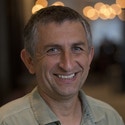
Nicolas Templier, Ph.D.
Burt Totaro, Ph.D.
Monica Visan, Ph.D.
Van Vu, Ph.D.
Lu Wang, Ph.D.
Mu-Tao Wang, Ph.D.
Li Wang, Ph.D.
Sijue Wu, Ph.D.
2023
Michael Aizenman, Ph.D.
Jarod Alper, Ph.D.
Aravind Asok, Ph.D.
Antonio Auffinger, Ph.D.
Nir Avni, Ph.D.
Matthew Baker, Ph.D.
Jennifer Balakrishnan, Ph.D.
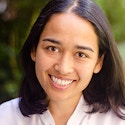
Alexander Braverman, Ph.D.
Melody Chan, Ph.D.
Wei-Kuo Chen, Ph.D.
Xiuxiong Chen, Ph.D.
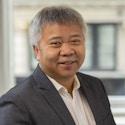
Tobias Colding, Ph.D.
Panagiota Daskalopoulos, Ph.D.
Tarek Elgindi, Ph.D.
Sheel Ganatra, Ph.D.
Andrey Gogolev, Ph.D.
Daniel Groves, Ph.D.
Mihaela Ifrim, Ph.D.
Mattias Jonsson, Ph.D.
Junehyuk Jung, Ph.D.
Kiran Kedlaya, Ph.D.
Sergiu Klainerman, Ph.D.
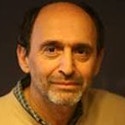
Robert Lemke Oliver, Ph.D.
Aaron Levin, Ph.D.
Guozhen Lu, Ph.D.
Anna Mazzucato, Ph.D.
Dhruv Mubayi, Ph.D.
Andrew Neitzke, Ph.D.
Hoi Nguyen, Ph.D.
Lillian Pierce, Ph.D.
Timo Seppäläinen, Ph.D.
Sug Woo Shin, Ph.D.
Christopher Sogge, Ph.D.
Bulent Tosun, Ph.D.
Jeff Viaclovsky, Ph.D.
Botong Wang, Ph.D.
Jun Yin, Ph.D.
Inna Zakharevich, Ph.D.
Xin Zhou, Ph.D.
2022
David F. Anderson, Ph.D.
Jason Behrstock, Ph.D.
Jin-Yi Cai, Ph.D.
Xuwen Chen, Ph.D.
Vaughn Climenhaga, Ph.D.
Henri Darmon, Ph.D.
Giovanni Forni, Ph.D.
Ailana Fraser, Ph.D.
Alexander Goncharov, Ph.D.
Matthew Gursky, Ph.D.
Piotr Hajłasz, Ph.D.
Jennifer Hom, Ph.D.
Adrian Ioana, Ph.D.
Nataša Jonoska, Ph.D.
Jeff Kahn, Ph.D.
Jeremy Kahn, Ph.D.
Chanwoo Kim, Ph.D.
Dmitry Kleinbock, Ph.D.
Alexander Kleshchev, Ph.D.
Sándor Kovács, Ph.D.
Michael Larsen, Ph.D.
H. Blaine Lawson, Ph.D.
Melvin Leok, Ph.D.
Tao Li, Ph.D.
Ayelet Lindenstrauss, Ph.D.
Robert Lipshitz, Ph.D.
Robert J. McCann, Ph.D.
Emily Riehl, Ph.D.
Mark Rudelson, Ph.D.
Rayan Saab, Ph.D.
Laurent Saloff-Coste, Ph.D.
Michael Stillman, Ph.D.
Vesna Stojanoska, Ph.D.
Jeffrey D. Streets, Ph.D.
Pham Huu Tiep, Ph.D.
Alex Townsend, Ph.D.
Mariusz Urbański, Ph.D.
Alexander Zupan, Ph.D.
2021
Mohammed Abouzaid, Ph.D.
Dan Abramovich, Ph.D.
Louigi Addario-Berry, Ph.D.
Radu Balan, Ph.D.
Sandra Cerrai, Ph.D.
Ivan Corwin, Ph.D.
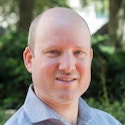
Carina Curto, Ph.D.
Charles Doering, Ph.D.
Hongjie Dong, Ph.D.
Alexander Elgart, Ph.D.
Solomon Friedberg, Ph.D.
Loukas Grafakos, Ph.D.
Alan Hammond, Ph.D.
Kate Juschenko, Ph.D.
Joel Kamnitzer, Ph.D.
Konstantin Khanin, Ph.D.
Chandrashekhar Khare, Ph.D.
Mikhail Khovanov, Ph.D.
Bryna Kra, Ph.D.
George Lusztig, Ph.D.
Russell Lyons, Ph.D.
Konstantin Mischaikow, Ph.D.
Jennifer Morse, Ph.D.
Grigoris Paouris, Ph.D.
Benoit Pausader, Ph.D.
Kasra Rafi, Ph.D.
Firas Rassoul-Agha, Ph.D.
Yiannis Sakellaridis, Ph.D.
Laura Schaposnik, Ph.D.
Christian Schnell, Ph.D.
Zhongwei Shen, Ph.D.
Katherine Stange, Ph.D.
Hung Tran, Ph.D.
Gunther Uhlmann, Ph.D.
Jan Wehr, Ph.D.
Jonathan Wise, Ph.D.
Helen Wong, Ph.D.
Jared Wunsch, Ph.D.
Michael Yampolsky, Ph.D.
Andrej Zlatoš, Ph.D.
2020
Benjamin Antieau, Ph.D.
József Balogh, Ph.D.
Jacob Bedrossian, Ph.D.
Roman Bezrukavnikov, Ph.D.
Paul Bourgade, Ph.D.
Martin Bridgeman, Ph.D.
Richard Canary, Ph.D.
Jonathan Chaika, Ph.D.
Xiaohui Chen, Ph.D.
Artem Chernikov, Ph.D.
David Damanik, Ph.D.
Mark Andrea de Cataldo, Ph.D.
Adrian Diaconu, Ph.D.
Nathan Dunfield, Ph.D.
David Fisher, Ph.D.
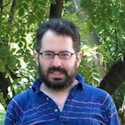
Mohammad Ghomi, Ph.D.
Michael Harris, Ph.D.
Svetlana Jitomirskaya, Ph.D.
Tasho Kaletha, Ph.D.
Boris Khesin, Ph.D.
Marcus Khuri, Ph.D.
Alexander Kiselev, Ph.D.
Leonid Koralov, Ph.D.
Michael Lacey, Ph.D.
Yanyan Li, Ph.D.
Victor Lie, Ph.D.
Mauro Maggioni, Ph.D.
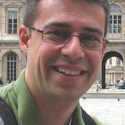
Elizabeth Meckes, Ph.D.
Hee Oh, Ph.D.
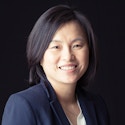
Richard Schwartz, Ph.D.
Karl Schwede, Ph.D.
Konstantinos Spiliopoulos, Ph.D.
Bianca Viray, Ph.D.
Z. Jane Wang, Ph.D.
Rachel Ward, Ph.D.
Juncheng Wei, Ph.D.
Elisabeth Werner, Ph.D.
Ting Zhou, Ph.D.
Xinwen Zhu, Ph.D.
Aleksey Zinger, Ph.D.
2019
Federico Ardila, Ph.D.
Nir Avni, Ph.D.
Yuri Berest, Ph.D.
Christopher Bishop, Ph.D.
Sergey Bobkov, Ph.D.
Vyjayanthi Chari, Ph.D.
Ivan Cherednik, Ph.D.
Gheorghe Craciun, Ph.D.
Philippe Di Francesco, Ph.D.
William Duke, Ph.D.
Sergey Fomin, Ph.D.
Joshua Greene, Ph.D.
Changfeng Gui, Ph.D.
Robert Guralnick, Ph.D.
Juhi Jang, Ph.D.
Victor Kac, Ph.D.
Matthew Kahle, Ph.D.
Nets Katz, Ph.D.
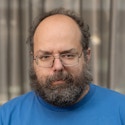
Rinat Kedem, Ph.D.
Autumn Kent, Ph.D.
Inwon Christina Kim, Ph.D.
Sergiu Klainerman, Ph.D.

Slava Krushkal, Ph.D.
Kai-Wen Lan, Ph.D.
Xiaochun Li, Ph.D.
Irina Mitrea, Ph.D.
Toan Nguyen, Ph.D.
Denis Osin, Ph.D.
Dmitry Panchenko, Ph.D.
Irena Peeva, Ph.D.
Malabika Pramanik, Ph.D.
Eric Rowell, Ph.D.
Andreas Seeger, Ph.D.
Evgueni Tevelev, Ph.D.
Tatiana Toro, Ph.D.
Jared Weinstein, Ph.D.
Michael Wolf, Ph.D.
Paul Yang, Ph.D.
Guoliang Yu, Ph.D.
2018
Marcelo Aguiar, Ph.D.
Anar Akhmedov, Ph.D.
Dmytro Arinkin, Ph.D.
Aaron Bertram, Ph.D.
Lydia Bieri, Ph.D.
Alexander Braverman, Ph.D.
Ching-Li Chai, Ph.D.
Jingyi Chen, Ph.D.
Yingda Cheng, Ph.D.
Jordan Ellenberg, Ph.D.
Rui Loja Fernandes, Ph.D.
Amanda Folsom, Ph.D.
Michael Goldstein, Ph.D.
Alexander Goncharov, Ph.D.
Anton Gorodetski, Ph.D.
Antonella Grassi, Ph.D.
Lan-Hsuan Huang, Ph.D.
David Jerison, Ph.D.
Jeffrey Lagarias, Ph.D.
Claude LeBrun, Ph.D.
Lionel Levine, Ph.D.
Marta Lewicka, Ph.D.
Max Lieblich, Ph.D.
Jacob Lurie, Ph.D.
Govind Menon, Ph.D.
Antonio Montalban, Ph.D.
Mircea Mustata, Ph.D.
Alexei Oblomkov, Ph.D.
Sam Payne, Ph.D.
Olga Plamenevskaya, Ph.D.
Kavita Ramanan, Ph.D.
Sebastien Roch, Ph.D.
Federico Rodríguez Hertz, Ph.D.
Sunder Sethuraman, Ph.D.
Roman Shvydkoy, Ph.D.
Yannick Sire, Ph.D.
Christopher Sogge, Ph.D.
Frank Thorne, Ph.D.
Shankar Venkataramani, Ph.D.
Alexander Vladimirsky, Ph.D.
2017
Matthew Baker, Ph.D.
David Ben-Zvi, Ph.D.
Mladen Bestvina, Ph.D.
Lewis Bowen, Ph.D.
Tobias Colding, Ph.D.
Panagiota Daskalopoulos, Ph.D.
Aleksandar Donev, Ph.D.
Zeev Dvir, Ph.D.
Ezra Getzler, Ph.D.
Anna Gilbert, Ph.D.
Florian Herzig, Ph.D.
John Imbrie, Ph.D.
Jeff Kahn, Ph.D.
Jeremy Kahn, Ph.D.
Michael Kapovich, Ph.D.
Boris Khesin, Ph.D.
Kay Kirkpatrick, Ph.D.
Nitu Kitchloo, Ph.D.
Alex Kontorovich, Ph.D.

Svitlana Mayboroda, Ph.D.
Chikako Mese, Ph.D.
Tomasz Mrowka, Ph.D.
Camil Muscalu, Ph.D.
Irina Nenciu, Ph.D.
Thomas Nevins, Ph.D.
Hee Oh, Ph.D.

Julia Pevtsova, Ph.D.
Andrei Rapinchuk, Ph.D.
Daniel Ruberman, Ph.D.
Mark Rudelson, Ph.D.
Thomas Scanlon, Ph.D.
Natasa Sesum, Ph.D.
Gigliola Staffilani, Ph.D.
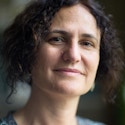
Nicolas Templier, Ph.D.
Benedek Valkó, Ph.D.
András Vasy, Ph.D.
Alexander Volberg, Ph.D.
Sijue Wu, Ph.D.
Wei Zhang, Ph.D.
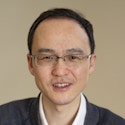
Maciej Zworski, Ph.D.
2016
Jinho Baik, Ph.D.
Fedor Bogomolov, Ph.D.
Lev Borisov, Ph.D.
Alexei Borodin, Ph.D.
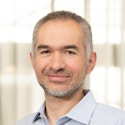
Fioralba Cakoni, Ph.D.
Xiuxiong Chen, Ph.D.

Maria Gordina, Ph.D.
J. Elisenda Grigsby, Ph.D.
Thomas Haines, Ph.D.
Julia Hartmann, Ph.D.
Christopher Hoffman, Ph.D.
Vera Mikyoung Hur, Ph.D.
Michael Hutchings, Ph.D.
Adrian Iovita, Ph.D.
Gautam Iyer, Ph.D.
Vadim Kaloshin, Ph.D.
Vitali Kapovitch, Ph.D.
Kiumars Kaveh, Ph.D.
Sean Keel, Ph.D.
Bryna Kra, Ph.D.
Radu Laza, Ph.D.
Liping Liu, Ph.D.
Dan Margalit, Ph.D.
Andrew Neitzke, Ph.D.
Adam Oberman, Ph.D.
Robert Pego, Ph.D.
Robin Pemantle, Ph.D.
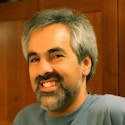
Robert Pollack, Ph.D.
Sorin Popa, Ph.D.
Dinakar Ramakrishnan, Ph.D.
Richard Schwartz, Ph.D.
Avraham Soffer, Ph.D.
Bernd Sturmfels, Ph.D.
Brian White, Ph.D.
Dapeng Zhan, Ph.D.
Shou-Wu Zhang, Ph.D.
Michael Zieve, Ph.D.
2015
Anthony Bloch, Ph.D.
Liliana Borcea, Ph.D.
Nigel Boston, Ph.D.
Ted Chinburg, Ph.D.
Octav Cornea, Ph.D.
Henri Darmon, Ph.D.
Laura DeMarco, Ph.D.
Tyrone Duncan, Ph.D.
John Etnyre, Ph.D.
Alan Frieze, Ph.D.
Dennis Gaitsgory, Ph.D.
Allan Greenleaf, Ph.D.
Daniel Groves, Ph.D.
Samuel Grushevsky, Ph.D.
Marco Gualtieri, Ph.D.
Yan Guo, Ph.D.
Eleny Ionel, Ph.D.
Krešimir Josić, Ph.D.
Rowan Killip, Ph.D.
Sergiu Klainerman, Ph.D.

Nicolai Krylov, Ph.D.
Thomas Lam, Ph.D.
Aaron Lauda, Ph.D.
Tao Li, Ph.D.
Hans Lindblad, Ph.D.
Guozhen Lu, Ph.D.
Mitchell Luskin, Ph.D.
Robert J. McCann, Ph.D.
Curtis McMullen, Ph.D.
Lenhard Ng, Ph.D.
Martin Olsson, Ph.D.
Bjorn Poonen, Ph.D.
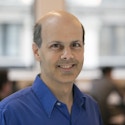
Florian Pop, Ph.D.
Mihnea Popa, Ph.D.
Cristian Popescu, Ph.D.
Nicolai Reshetikhin, Ph.D.
Timo Seppäläinen, Ph.D.
Alexander Varchenko, Ph.D.
W. Hugh Woodin, Ph.D.
Hong-Kun Zhang, Ph.D.
2014
Denis Auroux, Ph.D.
Jason Behrstock, Ph.D.
Roman Bezrukavnikov, Ph.D.
Francis Bonahon, Ph.D.
Samuel R. Buss, Ph.D.
Daniela Calvetti, Ph.D.
Guang Cheng, Ph.D.
Tim Cochran, Ph.D.
Donatella Danielli, Ph.D.
Mark Andrea de Cataldo, Ph.D.
Giovanni Forni, Ph.D.
Dan Freed, Ph.D.
Alexander Furman, Ph.D.
William Goldman, Ph.D.
Shelly Harvey, Ph.D.
Lizhen Ji, Ph.D.
Svetlana Jitomirskaya, Ph.D.
Joel Kamnitzer, Ph.D.
Martin Kassabov, Ph.D.
Ludmil Katzarkov, Ph.D.
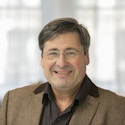
Dmitry Kleinbock, Ph.D.
Bruce Kleiner, Ph.D.

Elena Kosygina, Ph.D.
Sándor Kovács, Ph.D.
Slava Krushkal, Ph.D.
George Lusztig, Ph.D.
Ivan Mirkovic, Ph.D.
Kartik Prasanna, Ph.D.
Firas Rassoul-Agha, Ph.D.
Romyar Sharifi, Ph.D.
Eric Shea-Brown, Ph.D.
Scott Sheffield, Ph.D.
Robert Sims, Ph.D.
Pham Huu Tiep, Ph.D.
Kari Vilonen, Ph.D.
Daqing Wan, Ph.D.
Mu-Tao Wang, Ph.D.
Lauren Williams, Ph.D.
Christopher Woodward, Ph.D.
Michael Yampolsky, Ph.D.
2013
József Balogh, Ph.D.
Dror Bar-Natan, Ph.D.
Alexander Braverman, Ph.D.
Martin Bridgeman, Ph.D.
Xiaodong Cao, Ph.D.
Jeff Cheeger, Ph.D.
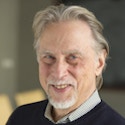
Ivan Cherednik, Ph.D.
J. Theodore Cox, Ph.D.
Rodica Curtu, Ph.D.
Vin de Silva, Ph.D.
Ron Donagi, Ph.D.
Hao Fang, Ph.D.
Mikhail Feldman, Ph.D.
Yuval Flicker, Ph.D.
Gregory Galloway, Ph.D.
Stavros Garoufalidis, Ph.D.
Tara Holm, Ph.D.
Christian Houdre, Ph.D.
Nicholas Katz, Ph.D.
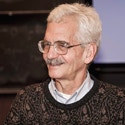
Ralph Kaufmann, Ph.D.
Konstantin Khanin, Ph.D.
Leonid Koralov, Ph.D.
Michael Larsen, Ph.D.
Zhiwu Lin, Ph.D.
John Lott, Ph.D.
Elizabeth Meckes, Ph.D.
Mark Meckes, Ph.D.
Peter Miller, Ph.D.
M. Ram Murty, Ph.D.
Andrea Nahmod, Ph.D.
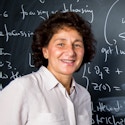
Barry Simon, Ph.D.
Hart Smith, Ph.D.
Jason Starr, Ph.D.
Catherine Sulem, Ph.D.
Peter Thomas, Ph.D.
Konstantina Trivisa, Ph.D.
Yen-Hsi Tsai, Ph.D.
Gunther Uhlmann, Ph.D.
Ravi Vakil, Ph.D.
Michelle Wachs, Ph.D.
2012
Ian Agol, Ph.D.
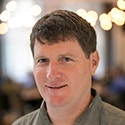
Michael Aizenman, Ph.D.
Sergey Bobkov, Ph.D.
Jared Bronski, Ph.D.
Gautam Chinta, Ph.D.
Kevin Costello, Ph.D.
David Damanik, Ph.D.
James Damon, Ph.D.
Tommaso de Fernex, Ph.D.
Aise de Jong, Ph.D.
Alan Demlow, Ph.D.
Nathan Dunfield, Ph.D.
David Fisher, Ph.D.

Jason Fulman, Ph.D.
Ira Gessel, Ph.D.
Paul Gunnells, Ph.D.
Robert Guralnick, Ph.D.
Weimin Han, Ph.D.
Ko Honda, Ph.D.
Srikanth Iyengar, Ph.D.
Trachette Jackson, Ph.D.
Victor Kac, Ph.D.
János Kollár, Ph.D.
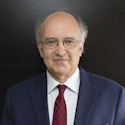
Igor Krichever, Ph.D.
Michael Lacey, Ph.D.
Elliott Lieb, Ph.D.
Bradley Lucier, Ph.D.
Zhengyu Mao, Ph.D.
Gloria Mari-Beffa, Ph.D.
Robert Meyerhoff, Ph.D.
Jennifer Morse, Ph.D.
Assaf Naor, Ph.D.
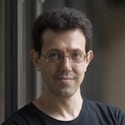
Itay Neeman, Ph.D.
Irena Peeva, Ph.D.
Sorin Popa, Ph.D.
Brian Rider, Ph.D.
Dan Romik, Ph.D.
Christian Rosendal, Ph.D.
Anne Schilling, Ph.D.
Richard Schwartz, Ph.D.
Theodore Slaman, Ph.D.
Christopher Sogge, Ph.D.
Joel Spruck, Ph.D.
Daniel Tataru, Ph.D.
